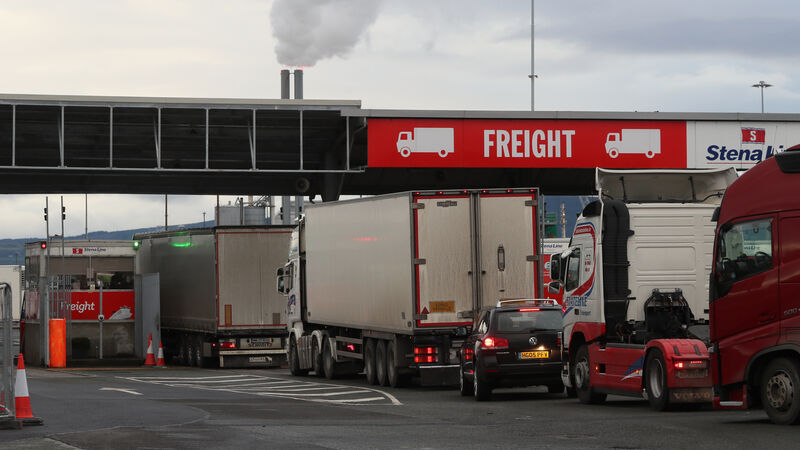Food exporters count the cost of Brexit disruption

Freight trucks at Dublin Port: industry says Brexit holdups at ports and extra bureaucracy will add at least 8% costs to value of food exports.
Try from €1.50 / week
SUBSCRIBEAgri-food co-ops say they face an increase in Brexit- related costs of at least 8%.
Academic research has also indicated a cost of 8-13% of the value of exports, mainly relating to the costs of customs procedures, compliance with sanitary and phytosanitary (SPS) requirements, costs of transit, and certification requirements.
Already a subscriber? Sign in
You have reached your article limit.
Annual €130 €80
Best value
Monthly €12€6 / month
Introductory offers for new customers. Annual billed once for first year. Renews at €130. Monthly initial discount (first 3 months) billed monthly, then €12 a month. Ts&Cs apply.
Newsletter
Keep up-to-date with all the latest developments in Farming with our weekly newsletter.
Newsletter
Keep up-to-date with all the latest developments in Farming with our weekly newsletter.
Newsletter
Sign up to the best reads of the week from irishexaminer.com selected just for you.
Newsletter
Keep up with stories of the day with our lunchtime news wrap and important breaking news alerts.
Saturday, February 7, 2026 - 3:00 PM
Saturday, February 7, 2026 - 4:00 PM
Saturday, February 7, 2026 - 7:00 AM
© Examiner Echo Group Limited